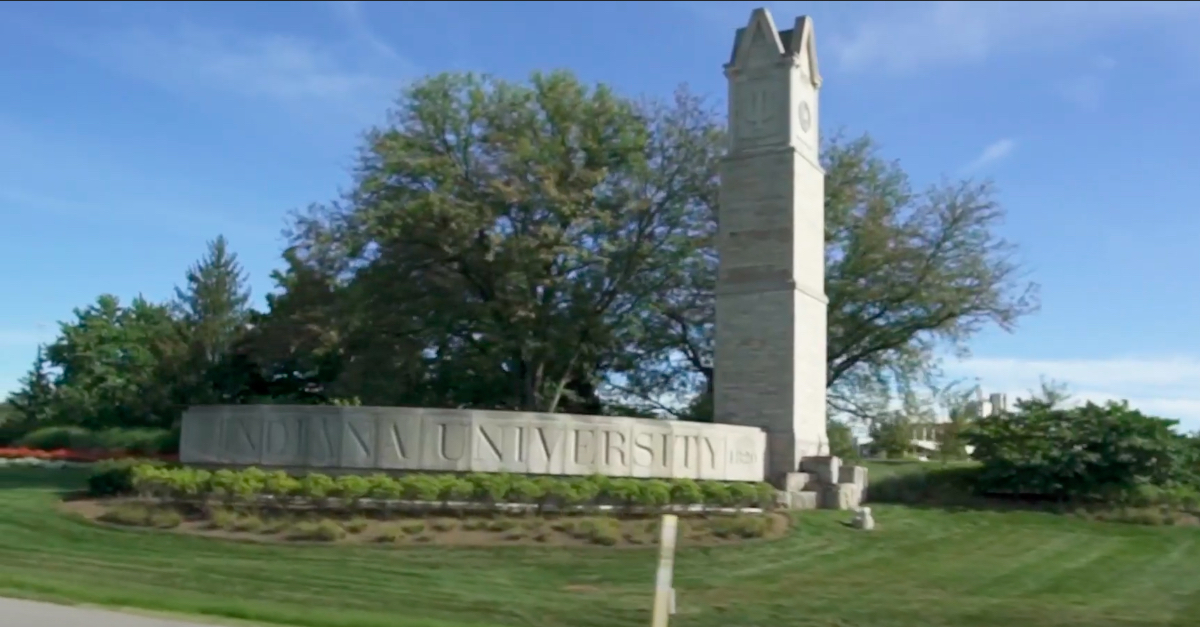
Pointing to Supreme Court precedent that has endured for longer than a century, a panel of Republican-appointed federal appellate court judges on Monday refused to stop Indiana University from enforcing its mandatory COVID-19 vaccination policy ahead of the upcoming semester. The inoculation requirements are constitutionally permissible and commonplace public safety measures, the judges found.
Writing for the unanimous three-judge panel on the Chicago-based U.S. Court of Appeals for the Seventh Circuit, Circuit Judge Frank Easterbrook, an appointee of Ronald Reagan, rejected the request of eight students who sought to block the measure from going into effect. Easterbrook emphatically shot down the students’ claims in the four-page ruling, repeatedly citing the Supreme Court’s landmark 1905 case finding state-enforced vaccine mandates to be legal.
“Given Jacobson v. Massachusetts, which holds that a state may require all members of the public to be vaccinated against smallpox, there can’t be a constitutional problem with vaccination against [COVID],” Easterbrook wrote, adding, “To the contrary, vaccination requirements, like other public health measures, have been common in this nation.”
The ruling—which was joined by Donald Trump-appointed Circuit Judges Michael Y. Scudder and Thomas Lee Kirsch (Justice Amy Coney Barrett’s successor on the Seventh Circuit)—affirmed a lower district court decision issued last month.
As previously reported by Law&Crime, several students in June filed a lawsuit in the U.S. District Court for the Northern District of Indiana seeking an injunction against the vaccine mandate, alleging that it violated the Constitution’s Equal Protection Clause. The 55-page suit asserted that the university’s policy “violates the liberty protected by the Fourteenth Amendment,” which “includes rights of personal autonomy and bodily integrity, and the right to reject medical treatment.”
Easterbrook conceded that the students had a right to make their own decisions regarding whether to get the vaccine, but said it does not trump the university’s right to decide what is necessary to students and faculty on campus safe.
“Each university may decide what is necessary to keep other students safe in a congregate setting. Health exams and vaccinations against other diseases (measles, mumps, rubella, diphtheria, tetanus, varicella, meningitis, influenza, and more) are common requirements of higher education,” the ruling states.
The court also drew a direct comparison between the decision to pay to attend the university and the decision to get the vaccination to attend the university, reasoning that both were choices to give up an individual right.
“We assume with plaintiffs that they have a right in bodily integrity. They also have a right to hold property. Yet they or their parents must surrender property to attend Indiana University. Undergraduates must part with at least $11,000 a year, even though Indiana could not summarily confiscate that sum from all residents of college age,” the ruling stated.
“If conditions of higher education may include surrendering property and following instructions on what to read and write, it is hard to see a greater problem with medical conditions that help all students remain safe when learning.”
Easterbrook also noted that seven of the eight students were eligible to apply for an exemption from the mandate on religious or medical grounds, emphasizing that those students “just need to wear masks and be tested, requirements that are not constitutionally problematic.”
Indiana University praised the ruling in a statement following the decision.
“Once again, the court has affirmed our legitimate public health interest in assuring the safety of our students, faculty and staff and we are excited to welcome our community back for the fall semester,” the university said.
Heavyweight conservative lawyer James Bopp Jr., who represents Ryan Klaassen and seven other students challenging the vaccination policy, did not immediately respond to an email requesting comment.
Read the full ruling below.
[image via YouTube screengrab]